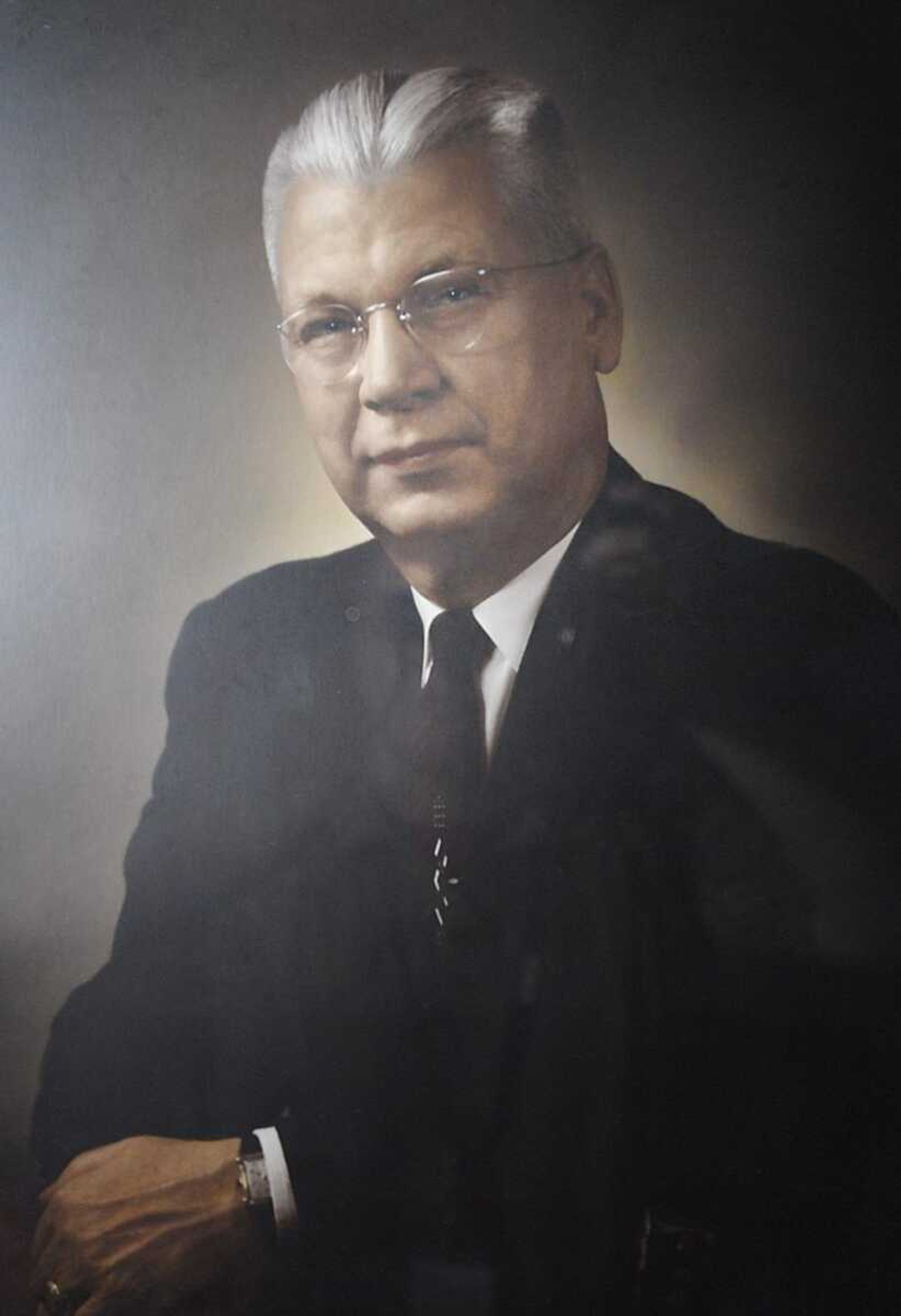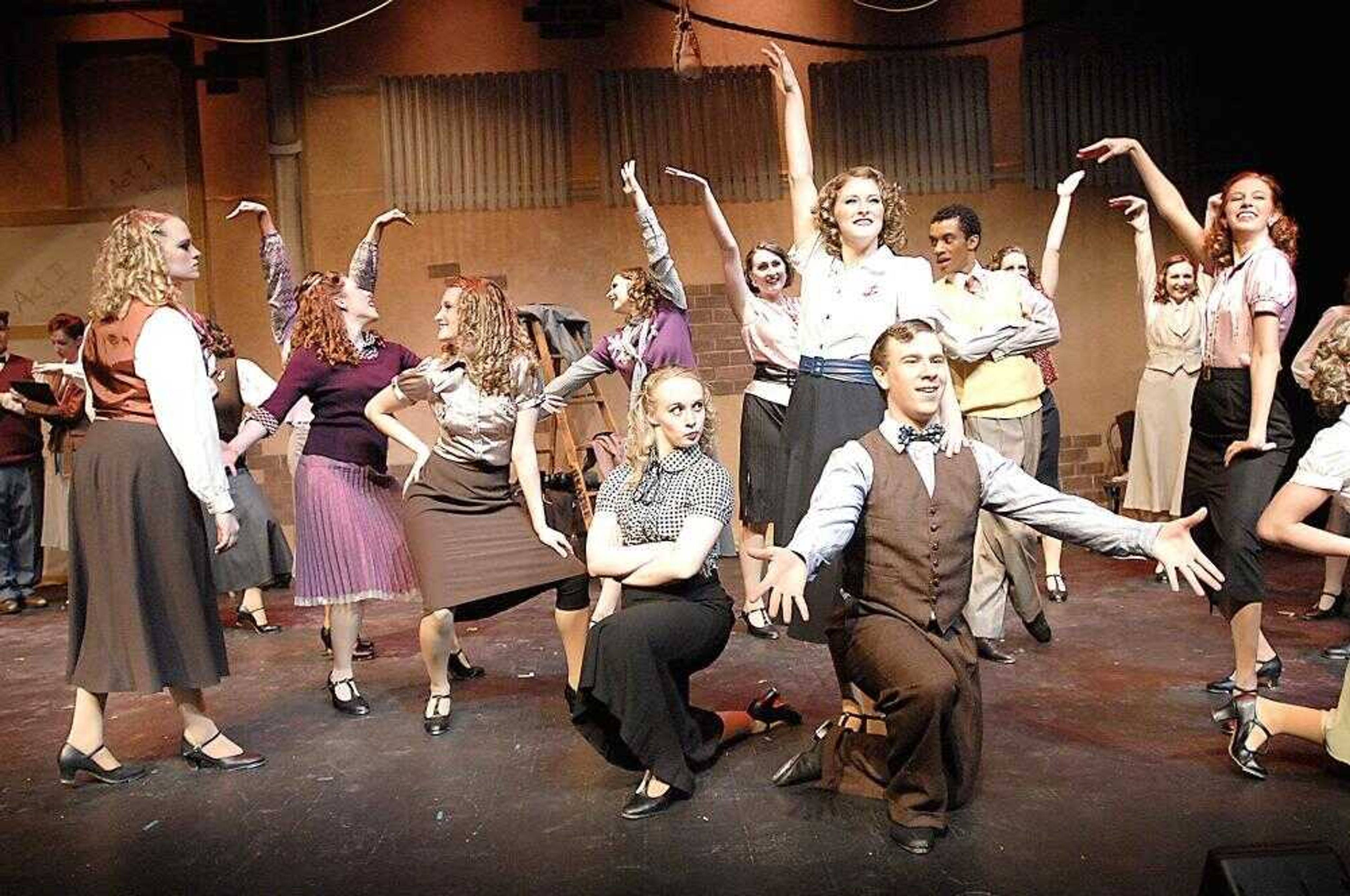Theater readied for final bow
For 40 years the Rose Theatre has been home to Southeast Missouri State University theater and dance productions, but Friday, when "42nd Street" starts its run at the Rose, will mark the end of an era. The musical extravaganza will be the last theater production in the Rose Theatre. Next year those shows will take place at the River Campus...
For 40 years the Rose Theatre has been home to Southeast Missouri State University theater and dance productions, but Friday, when "42nd Street" starts its run at the Rose, will mark the end of an era.
The musical extravaganza will be the last theater production in the Rose Theatre. Next year those shows will take place at the River Campus.
Construction on the theater began in 1964 as part of the Language Arts Building, which would later be named for Dr. H.O. Grauel, a longtime English professor and administrator at what was then known as State College. Two years later the Rose, originally called "The Theatre," hosted its first production in fall 1966, "J.B.," a drama based on the book of Job.
For the faculty and students of what was then the Department of Speech Communication and Theatre, the new theater was about perfect, especially after working for so long in the tight confines of Academic Hall's auditorium.
"It's kind of the difference between heaven and hell," said Dr. Jack Hensley, a theater professor at the university from 1963 until 1997.

All the department staff saw a need for a new theater, Hensley said, but it was Dr. Forrest H. Rose, dean of the college and head of the theater department, who made the push to get adequate theater facilities included in the construction of the new Language Arts Building.
"His influence got them to include a theater wing," Hensley said. "He would never say that."
Rose was able to see the payoff of his efforts when The Theatre was completed, but he died in December 1969, just months before he would have retired. Soon after his death, the structure was renamed Rose Theatre, and later Forrest H. Rose Theatre, said Dennis Seyer, a theater professor of 30 years at Southeast set to retire next month.
"Everybody thought it was appropriate to name it the Rose Theatre," Seyer said. Everyone except Rose himself.
Dr. Frank Glann, a Southeast faculty member from 1959 to 1967, remembers a banquet at which another professor, Dr. Larry Grisvard, proposed naming the theater after Rose. "Whereupon Dr. Rose spoke up in mock protest noting that the policy ... was not to name building for people who were still living, and questioned whether Larry had an ulterior motive," Glann said. "The theater was so named for Rose after his untimely death, and it is fitting for me to see his portrait gracing the wall of the lobby."
Visitors to the Rose may not notice Rose's portrait, which looks almost directly at the theater entrance. Not that Rose would want them to notice -- those who knew him said he wasn't a man who craved attention.
But Rose did love the theater that would eventually bear his name, even before it was built.
"It's going to be a honey," Rose wrote in a letter to his daughter Mary Lou during the construction. "We will have the best-equipped theater and speech clinic of any college in the Midwest."
Barbara Rust, Rose's daughter, said her father had no idea when he died that the theater would eventually be named for him. And though he loved the new theater, he loved students even more, she said.
"Dad used to go down and bail kids out of jail when they were in trouble," Rust said.
The man Rose Theatre is named for is only one part of the building's history. Through its history the Rose Theatre has hosted scores of productions, creating memories for students, faculty and patrons.
Former theater professor Don Schulte had quite an introduction to the new theater when his first production there, "Beckett," was being made. One night after rehearsal, Schulte and others at the theater smelled smoke and hit the fire alarm. Firefighters arrived soon after and found the source -- someone had thrown a cigarette butt in a smoldering trash can. Afterward it took several minutes to find the switch to turn off the alarm. No one knew where the switch was because the building was new, Schulte said.
There was no harm to the theater, but the experience was harrowing for Schulte.
"Here I was thinking, 'Oh my God, this is the end of this job, and I just started the thing,'" Schulte said. "I could see the headlines the next day, "New instructor fired because of fire.'"
Current theater and dance department chairman Dr. Kenn Stilson remembers performing as a student actor on the Rose Theatre stage in the late 1970s.
"It was kind of overwhelming to perform on the Rose Theatre stage at that particular time in my life," said Stilson, who hails from Malden, Mo. "It was a grand step up from where I had come."
Stilson said the theater still overwhelms students today.One particular story has added an air of mystery to the Rose over the years -- that the theater is haunted by a female ghost. The story is that her house was once on the site, a house in which she killed her unfaithful husband.
Seyer, the longest-running current professor at 30 years (Seyer was also an undergraduate student at Southeast), said he doesn't know how true the rumors are, but he's never seen the ghost.
"If there is a ghost here, she doesn't bother me and I don't bother her," Seyer said. "We're gentle spirits."
Everyone who has worked in the Rose says the building has served the department well over the years. Though the 500-seat Rose was state-of-the-art at the time of construction -- a large stage, great acoustics and continental seating that provided a great vantage point from anywhere in the room -- the department has now outgrown the space, Stilson said.
With "42nd Street," the theater is bursting at the seams.
"It's still a wonderful, functioning theater," Stilson said. "It can still be used for a lot of things, and it's still wonderful for certain types of shows, but technology has advanced beyond this theater's capabilities, and our larger productions have outgrown the space."
The new Donald C. Bedell Performance Hall at the River Campus will provide more room on-stage, backstage and provide more seats, about 900. The theater and dance department will begin producing shows there in the fall.
But the Rose won't be torn apart. The old theater will still be used by Southeast's Department of Communication as a space to shoot video, thereby expanding the program's TV facilities, said department chair Dr. Stuart Towns. Some performances, public speakers and public meetings will also make use of the space.
Hensley said the building has already left an indelible mark on Cape Girardeau.
"It has opened up an opportunity for cultural advancement that would never have been there," he said.
msanders@semissourian.com
335-6611, extension 182
Connect with the Southeast Missourian Newsroom:
For corrections to this story or other insights for the editor, click here. To submit a letter to the editor, click here. To learn about the Southeast Missourian’s AI Policy, click here.









